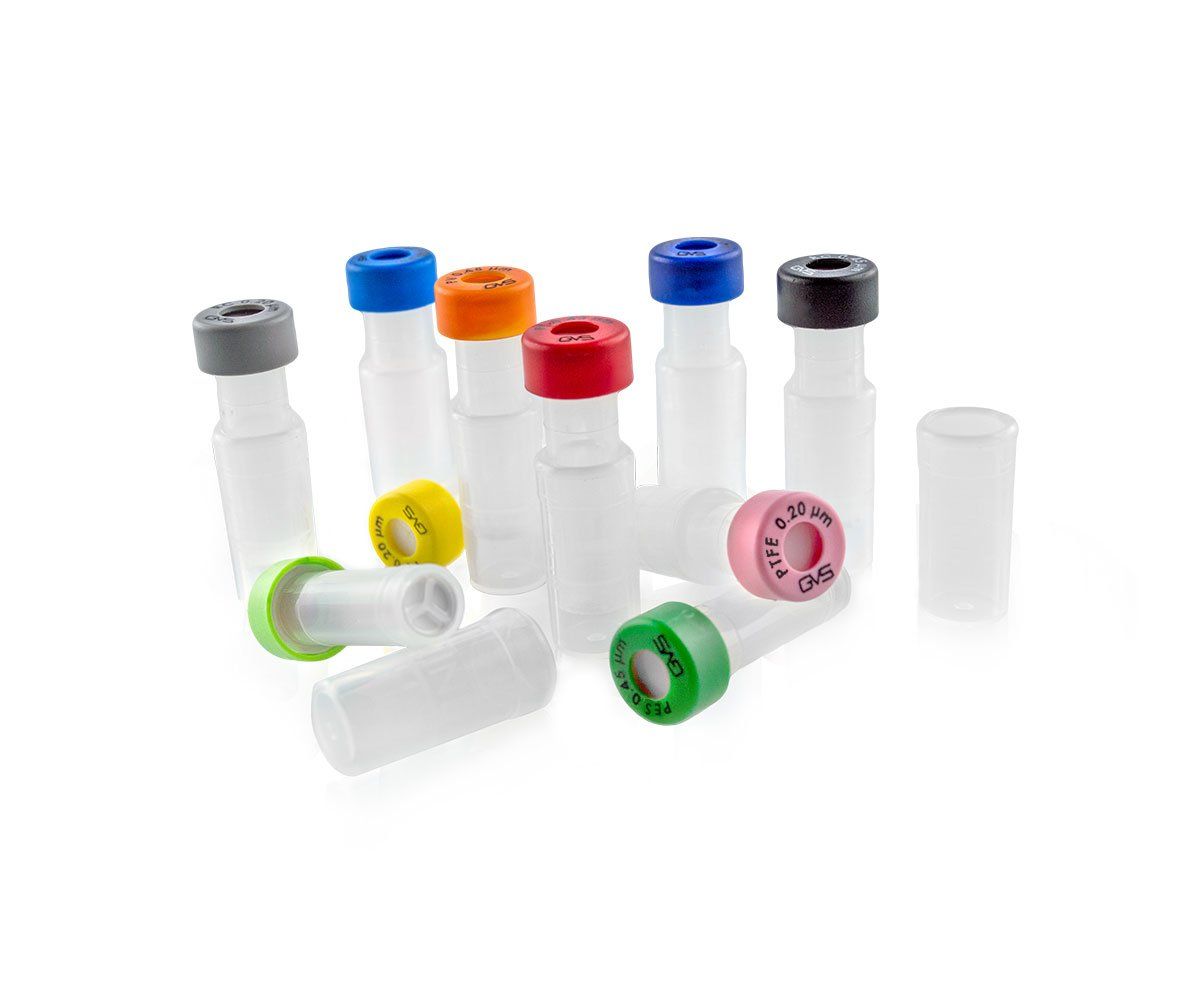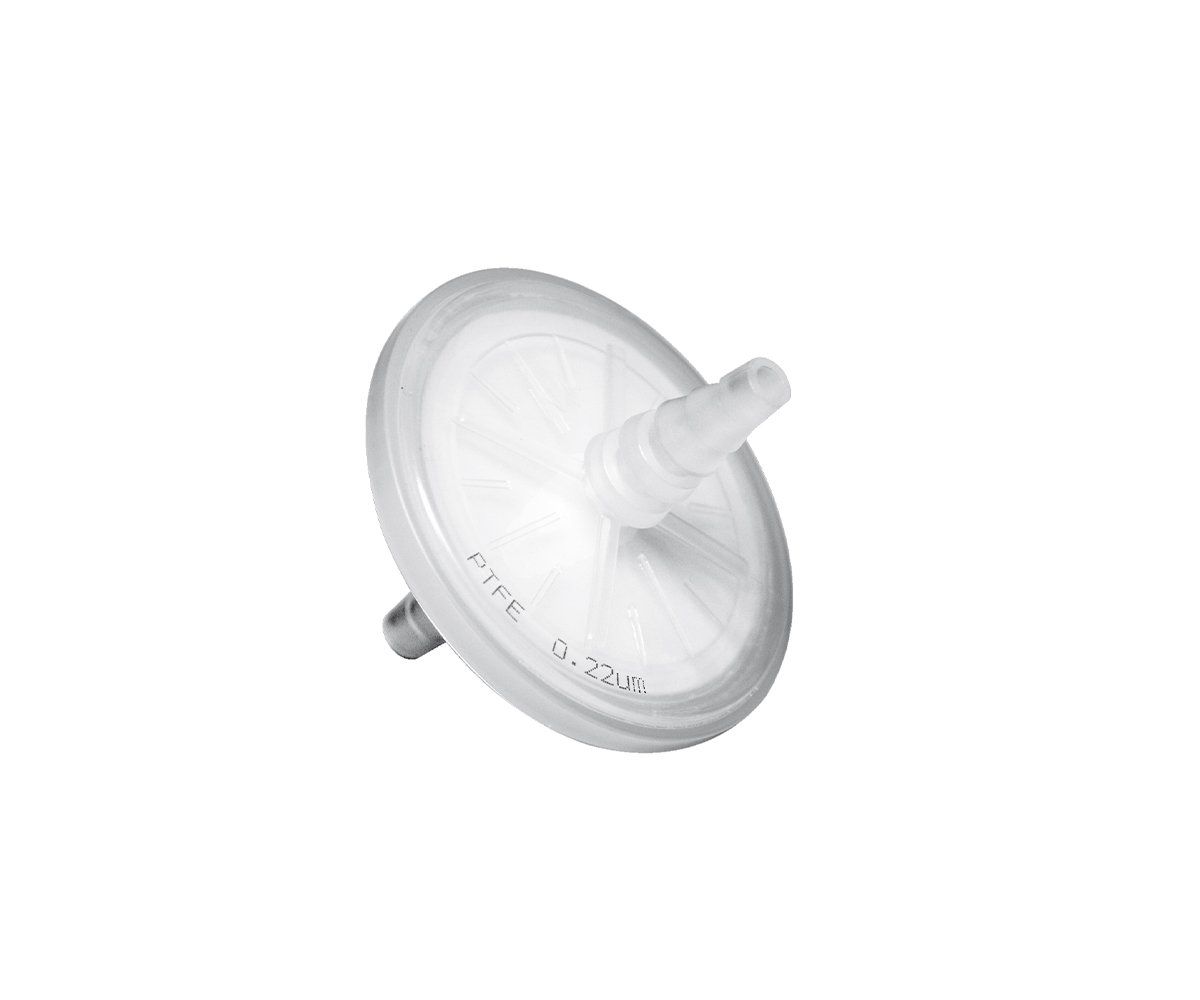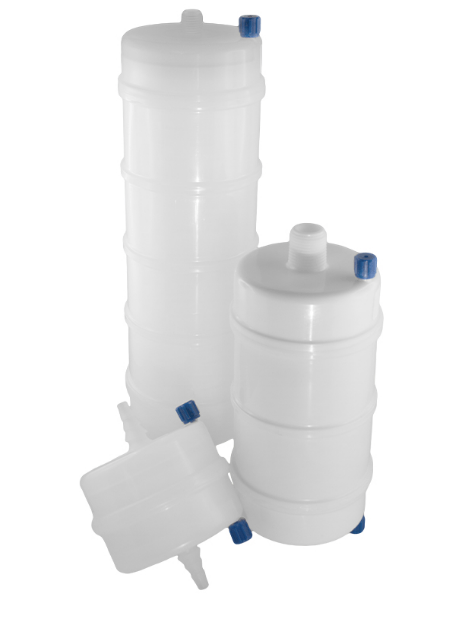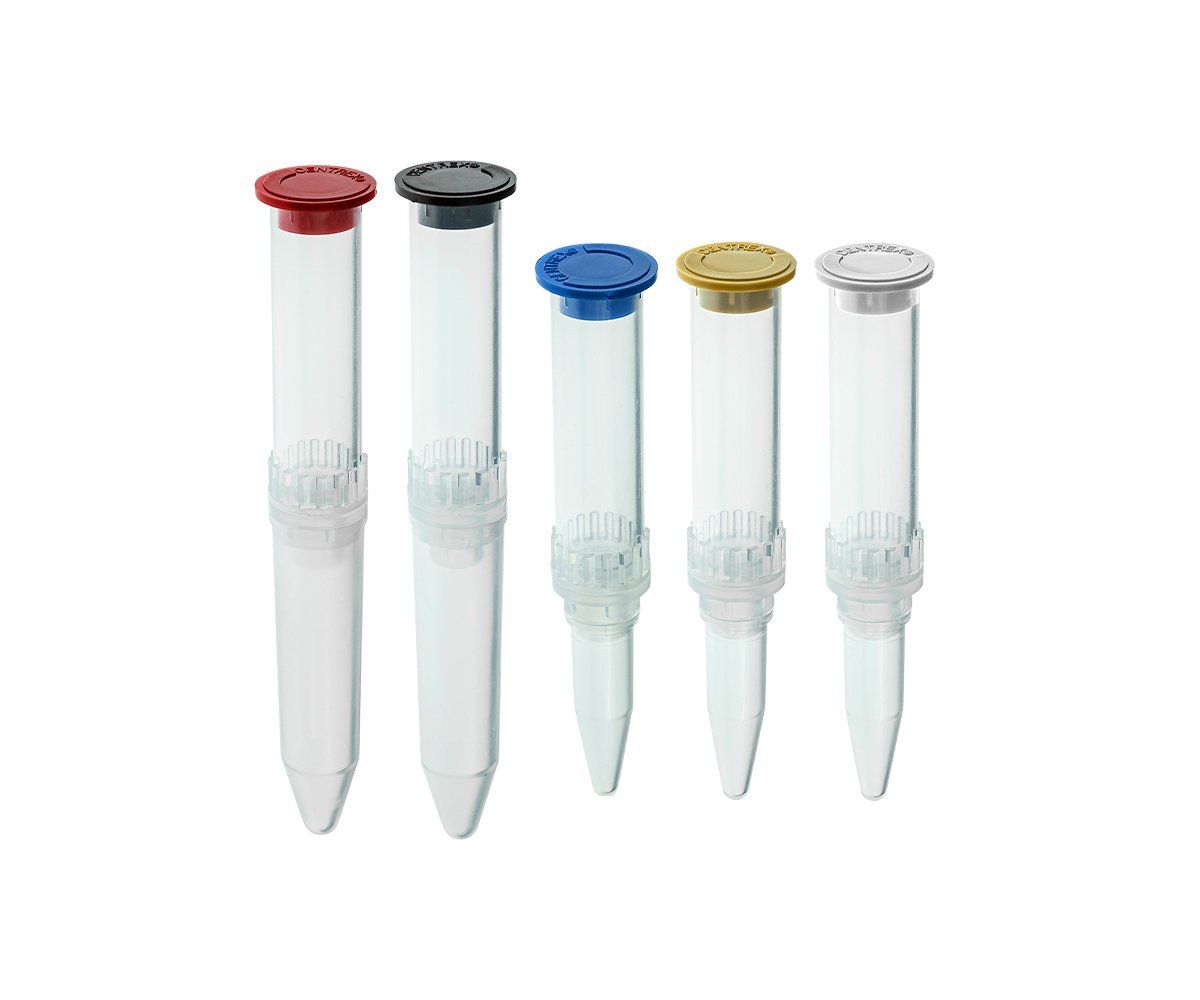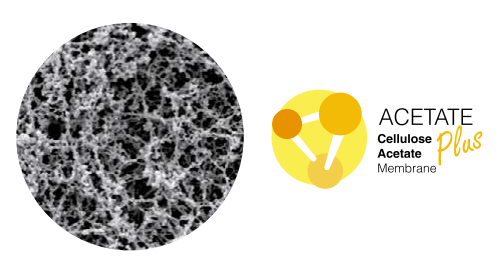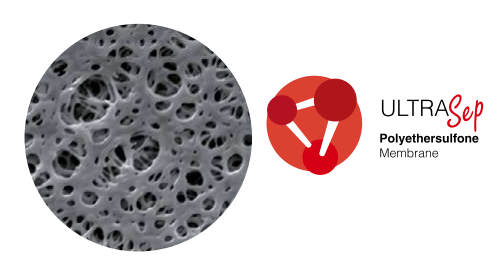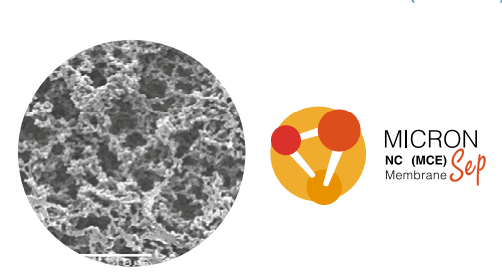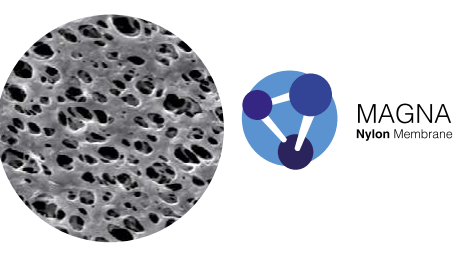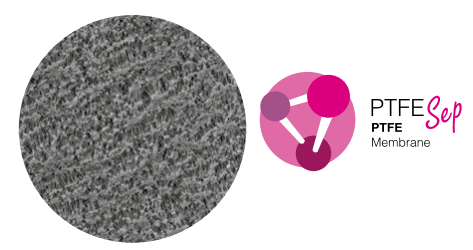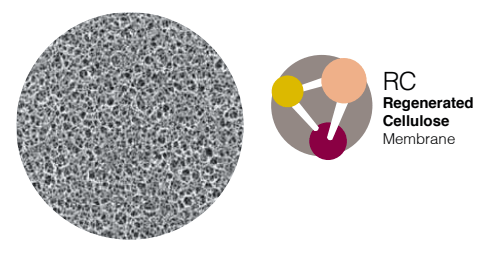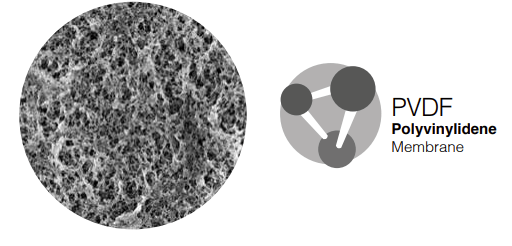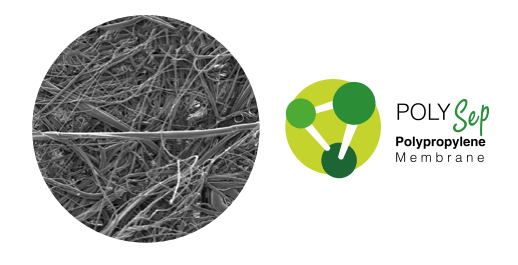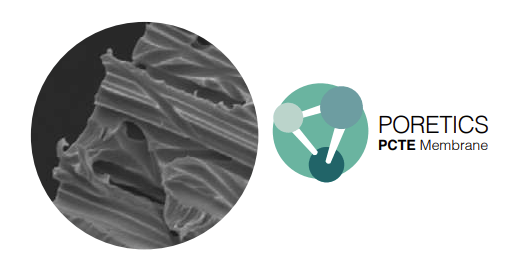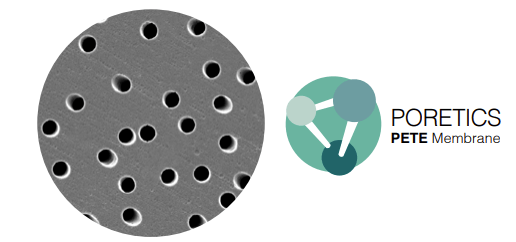Laboratory FILTERS
Microfiltration
Liquid samples are common in laboratory work. In these samples not all components are soluble and exist as particulates, gel or large insoluble polymers. Most analysis can only be carried for soluble components and the insoluble must be removed otherwise they block analytical equipment like columns. Filtration is a standard procedure in laboratories but they require very accurately sized membranes. This makes the selection of a reliable source very important. Besides many laboratory chemicals are aggressive and require specialized materials. PT Arasains together with GVS supplies very accurately sized membranes and in many different materials to make your lab work precise and labor saving.
Syringe Filters
Abluo syringe filters are used for rapid filtration of aqueous and organic solutions before injection into HPLC, GC or GPC columns. They are made from high quality materials like cellulose acetate, nitrocellulose, nylon PE, PES, PTFE, PVDF, regenerated cellulose which leaves no trace of contaminants. The housing is made of acrylic ultrasonically welded together. An improved flow channel design leaves a ultra-low volume of liquid retained and greater effective filtration area. They are commonly used in sterile filtration, analytical sample prep, uHPLC, Cell culture, protein chemistry, IC Chromatography. They are available from Arasains in sizes 13 and 33mm with membrane from 0.2 microns to 5 microns in sterile and non-sterile versions.
A multilayered syringe filter, Abluo supreme syringe filters is available. The filters are grades and is an excellent solution for sample with high particulate content. It is very useful for sample larger than 10 ml.
Disposable syringe filters are also available.
Separa Syringeless Filters
Separa syringeless filters is an ingenious way to save time and money for sample preparation. Normally sample preparation involves taking a syringe and sucking the required volume to inject into a syringe filter for removal of particulates. The filtered sample must then be stored in a septum enabled sample bottle for use in HPLC etc. Separa vials simplifies these steps into a one step operation. Just fill 450 µl of sample into vial, press to filter and cap at the same time. A septum on the cap allows automatic sampling by robots. Various filter materials like PTFE, RC, Nylon, PVDF are available for pore sizes of 0.2 and 0.45 µm. A Separa Toggler is also available for compressing 12 vials at a time.
Vent Filters
Vent filters are used for sterile venting of filter vessels and carboys or venting autoclaves. They are also used for low volume filtration of non-aqueous fluids or in line sterilization and particulate removal from air and gases. Arasains Indonesia supplies GVS vent filters with connectors 6-12 mm and are individually packed sterile or non- sterile. Membrane available are PTFE in polypropylene housing with pore sizes of 0.2 and 0.45 µm.
Calyx Capsule Filters
Capsule filters are designed to filter larger quantities of samples as they are made of layered membranes. The bodies are made of polypropylene or polyester and membranes come in materials like PP, PES, Nylon 66, or PTFE. Arasains Indonesia supplies capsules in large, medium and small sizes and in sterile and non-sterile versions. Capsule filters are designed to remove bacteria or particles from solvent or aqueous streams. They are ready to use and no need to be assembled or disassemble. Two upstream vents are available to operate in any position. The membranes are pre-flushed to remove extractables. The capsules are food compliant and pass FDA/EU standards and pass toxicology class VI testing.
Centrifuge Filters
Centrifuge filters are devices with filters fitted inside the vial to filter out sample particles during centrifugation process. They are often used for small scale laboratory separations such as protein or nucleic acid desalting and concentration. The filtration action depends on the centrifugal force to drive the liquid through the filter. Increasing the centrifuge speed increases the G force and thus the pressure across the membrane. Arasains Indonesia supplies Centrex centrifuge filters in various housing and filter materials. Contact the friendly Arasains sales representative for information on compatibility of housing and filter materials.
Filter Membranes
Laboratory membranes are commonly used in the lab in conjunction with filter holders of various sizes. GVS membranes are supplied in sizes from 13 cm to 30 cm in round shape. They are used for prefiltration, solvent filtration for HPLC, sample clarification etc. GVS membranes are known for their high quality and accurate pore sizes allowing you confidence in your laboratory work.
Cellulose Acetate (CA) Membrane
GVS Cellulose acetate is a supported hydrophilic membrane that has a low binding affinity for protein. It is recommended for use where you need maximal recovery of proteins. It is also good for biological and clinical analysis, sterility tests and scintillation measurements and commonly used for aqueous or alcoholic media. They are solvent and heat resistant up to 135°C. Arasains Indonesia supplies GVS Acetate plus cellulose acetate membranes. Contact the friendly Arasains sales representative for information on compatibility of housing and filter materials. The exceptional dimensional strength and low binding characteristics of GVS CA Filtration Membranes provides higher throughputs than competitive offerings and reduces the amount of filter changes needed during proteinaceous solution filtering. Its uniform pore size and consistent flow rates ensure reliable performance.
Features and Benefits:
- Superior strength: Can withstand aggressive handling or be used with automated equipment without breaking or tearing
- Low extractables: Ensures tests will be clean with consistent results
- Hydrophilic: Wets out rapidly
- A Lot-to-lot consistency: Quality checks ensure consistent flow and diffusion rates for dependable results every time
- Non-lysing of cells: Prevents contamination of critical solutions
- Can be autoclaved or steam sterilized
Polyethersulfone (PES) Membrane
GVS Ultra Sep Polyethersulfone (PES) membranes are cast from pure PES polymer and are hydrophilic. They are known for its thermal stability, durability and resistance to acidic and alkaline conditions. It is specially designed for general filtration and has low protein binding characteristics. They are often used as alternative to cellulose membranes and offer fast flow, high filter capacity together with low protein binding. While remaining bacterially retentive. It has low extractables and its strength and durability make it useful for aggressive and automated handling.
Features & Benefits:
- Hydrophilic: Eliminates the need for wetting agents that can potentially interfere with analyses
- Low extractables: Ensures test results will not be compromised by wetting agents or other extractables Low drug and protein binding: Maximizes recovery of critical drugs or proteins
- Wide range of pore sizes: Pore size range of 0.03 μm to 8.0 μm enables specific pore size selection for given applications
- Superior burst strength: Protects the integrity of the membrane under high pressure
- Lot-to-lot consistency: Quality checks, both down and across the membrane, ensure dependable results every time
Mixed Cellulose Esters (MCE) Membrane
Mixed cellulose ester membranes consist of cellulose acetate and cellulose nitrate fibers. It is an unsupported hydrophilic membrane and has a rapid flow rate making it good for diagnostic kit membrane applications. Typical applications include general filtration sterility testing, gravimetric analysis with ashing, microbiological and particulate analysis. GVS MCE membranes gives a residue of less than 0.045% of their initial weight. GVS membrane consistent microporous structure gives it outstanding particulate control and performance. The membrane are hydrophilic with a non-cytotoxic wetting agent and they are autoclavable at 121°C for 20 min. Sterilized products have a lifetime of 24 months from sterilization date. Pore sizes are available from 0.1 to 8 µm.
Features and Benefits:
- High flow rate: fast filtration rates
- Uniform pore structure: consistent flow and diffusion rates
- Lot-to-lot consistency
- Low protein binding of approx. 160 µg/cm2 (depending on pore size)
- Residue of less than 0.045% of initial weight
Nylon 66 (NY) Membrane
Nylon membrane is a supported and naturally hydrophilic membrane that wets out evenly but still maintain its superior strength. The strength is derived from an inert polyester support web giving dimensional strength and stability that prevents cracking, tearing, curling and breaking. As such it can stand aggressive handling or automated equipment. They have low extractables and are commonly used for general filtration of aqueous and solvent solutions like in HPLC and other analytical methods. They exhibit high protein and small molecule bonding and are not recommended for biological samples. Contact the Arasains Indonesia sales rep for information on sizes and flow rates.
Features & Benefits:
- Hydrophilic: Eliminates the need for wetting agents that can potentially interfere with biological processes
- Super strength: Eases handling when used with automated equipment
- Low extractables: Ensures tests will be clean and pure leading to more consistent results
- Lot-to-lot consistency: Quality checks ensure lot-to-lot consistency, both down and across the polyester web, for dependable results every time
Polytetrafluoroethylene (PTFE) Membranes
PTFE sep membranes are made of a polytetrafluoroethylene membrane laminated onto a polypropylene support for improved durability and strength. Besides superior strength they have broad chemical compatibility and as such are used routinely for corrosive and aggressive chemicals. PTFE powder in a fine powder format is melted and expanded into a 3D web like structure with billions of microscopic pores. PTFE is inherently hydrophobic (water resistant) and its non-stick nature allows easy removal of captured particles. Air can easily pass through such a membrane capturing up to 0.1 micron particles. These membranes provide users with a consistent, temperature and chemical compatible barrier to microbes and particulate matter. These membranes can be made hydrophilic by wetting with methanol. They are autoclavable up to 130°C. Pore sizes range from 0.22 to 1 µm.
Features & Benefits:
- Naturally hydrophobic
- Compatible with strong acids and aggressive solutions
- Improved durability and handling
- Autoclavable
Regenerated Cellulose (RC) Membrane
GVS regenerated cellulose membranes are hydrophilic and spontaneously wet in water. It is high in strength and have broad chemical compatibility with low extractables in a wide variety of chemicals. They can easily be sterilized and have low protein binding enabling their use in biologicals. RC membranes are commonly used in many general filtration purpose including for HPLC or in syringe filters.
Features & Benefits:
- Hydrophilic
- Excellent chemical compatibility and resistance to organic solvents
- Low non-specific adsorption
- Superior thermal resistance
- High mechanical strength
- Maximum Operating Temperature 134°C
Polyvinylidene Fluoride (PVDF) Membrane
GVS Hydrophilic Polyvinylidene Difluoride (Hydrophilic PVDF) Filtration Membrane is a supported, hydrophilic membrane that exhibits broad chemical compatibility and low protein binding. Thus, it is used for a large variety of biomedical applications. It is composed of PVDF membrane internally supported by an inert polyester web. The support gives the resulting membrane dimensional stability. This provides higher throughputs than competitor offerings and reduces the amount of filter changes needed during filtration. It is ideal for use in filtration applications of biological solutions. This hydrophilic membrane has a great thermal stability with maximum operating temperature of 175°F and it is autoclavable.
Features & Benefits:
- Superior strength to withstand aggressive handling or use with automated equipment without breaking or tearing
- Low protein binding minimizes retention of proteins in solution
- Low extractables ensure tests will be clean with consistent results
- Lot-to-lot consistency ensures consistent flow and diffusion rates for dependable results every time
Polypropylene (PP) Membrane
GVS PP membranes are made of pure polypropylene with absolute pore ratings. They have wide range of solvent and thermal compatibility and they are the go-to membranes for HPLC applications where the detection levels are below 230 nm. This filter has low extractables and are routinely used of sensitive ion chromatography while prolonging column life. They have negligible protein binding thus giving high filtration yields. Due to its exact pore size they have high particle retention and dirt holding capabilities as well as low pressure drop. Their hydrophobic nature makes them the choice membrane for organic solvents but can be made hydrophilic with alcohol wetting.
Features & Benefits:
- Broad chemical compatibility
- Hydrophobic
- HPLC applications - detection levels < 230 nm
Polycarbonate Track Etched (PCTE) Membrane
GVS Polycarbonate Track Etched (PCTE) Membrane is made from a thin polycarbonate film with precisely defined pores. It is ideally suited for use in cellular-based filtration assays as well as filtration applications where high purity is required. The membrane is produced through a two-step, proprietary manufacturing process that employs high quality standards. In the first step, polycarbonate film is exposed to ion particles that pass through it. As the ions pass through the film, they create “tracks” where the polymer is damaged. The beamed film is then exposed to a chemical that etches out the tracks creating precise, cylindrical pores. Pore density is controlled by the number of tracks per unit area, and pore size is controlled by varying the temperature, strength and time of exposure to the etching solution. This unique process allows for increased control over pore size and density to ensure the physical properties of each membrane precisely fit your specifications. The resulting membrane is a thin, translucent polycarbonate film with a smooth, flat surface. All particles larger than the pore size are captured on its surface.
GVS offers a unique solution for Legionella analysis following the new standard UNI EN ISO 11731. Our sterile gridded membranes are suitable for this test and give you the best performances. GVS offers the PCTE Membrane for AOX use (adsorbable organic halogens) with exceptionally low protein-binding/ extractable levels and precisely defined pores. These AOX -certified polycarbonate (PCTE) membranes are ideally suited for the detection of man-made pollution in groundwater and wastewater (organic halide adsorption determination). Pore sizes range from 0.05 to 20 µm. For choices of pore sizes and flow rates, contact the friendly Arasains sales representative.
To optimize the suitability of PCTE, we offer a variety of products with unique characteristics:
- PVP (polyvinylpyrolidone)-treated for a hydrophilic membrane
- AOX-certified for applications requiring extremely low extractables
- A Black-dyed membrane for staining applications
- PVP-free for a hydrophobic membrane
Features and benefits:
- Absolute pore size and density allows for precise size separation
- Direct thickness and pore size measurements provide accurate characteristics
- Smooth, thin, glass-like surface is suitable for microscopy and cellular applications
- Superior strength allows for aggressive handling
- Low protein binding ensures clean results
- Resists chemical staining to ease microscopic visualization
- Passes USP VI Class toxicity testing for use
Typical Applications:
- General filtration
- Legionella test (UNI EN ISO 11731_2017)
- Removal of red blood cells from plasma
- Flow control of reagents through assays
- Precise filtration and prefiltration
- Fuel testing
- Cytology
- Microscopy
Polyester Track Etched (PETE) Membrane
GVS PETE membrane is prepared from a thin polyester film which is then exposed to ions which burn holes through it. This film is then exposed to a chemical solution which burns the holes to precise dimensions. This unique process allows for controlled pore sizes and density to ensure that the physical properties of each membrane fit your use. The membrane thus prepared has a smooth translucent surface with precise pores of the right dimensions. The membrane has better solvent resistance tan the polycarbonate ones. It is used for blood assays and aggressive solvents. Contact the friendly Arasains sales rep for application details.
Features and benefits:
- Broad range of chemical compatibility for a wide range of applications
- Direct thickness and pore size measurements ensure accurate characteristics
- Naturally hydrophilic so pre-treatments and wetting agents are not required
- Smooth, thin, glass-like surface for microscopic visualization
- Low protein binding ensures clean results
Typical Applications:
- General filtration
- Removal of red blood cells from plasma
- Flow control of reagents through assays
- Precise filtration and prefiltration
- Air analysis
- Filtration of aggressive solutions
- Cellular assays and diagnostics
- Trace element analysis
To Get More Information
Don't Hesitate to Contact Us
Company Address
Rukan Kirana Boutique Office
Blok F3 no 12, Boulevard Raya No.1 Kelapa Gading. Jakarta Utara
Indonesia, 14240
Contact
+6221 4585 8833
info@arasains.co.id
Quick Link
Product Link
Copyright (c) 2021 PT Arasains. All Right Reserved





